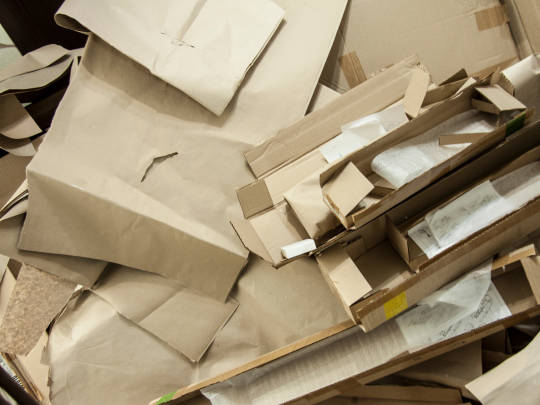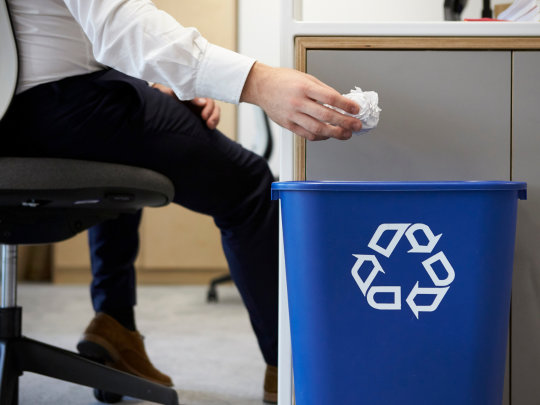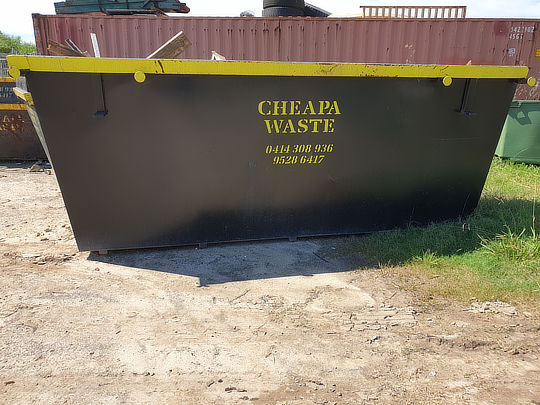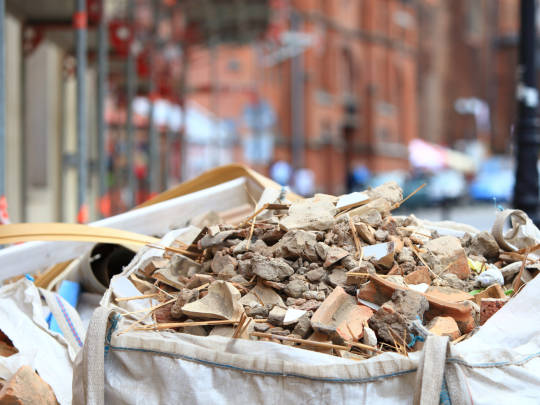In today’s business landscape, where environmental responsibility and cost-effectiveness go hand in hand, the imperative to reduce commercial waste has never been stronger. The sheer volume of waste generated by businesses can strain resources, inflate operational costs, and contribute to ecological degradation.
What Is Commercial Waste?
Waste generated by a business on its property is classified as commercial waste. Whether it’s waste from an office, a construction site, a shop, or a café, it’s commercial waste.
A variety of waste is included in this category, including coffee cups and lunch packages, food waste, paper, cardboard, rubble, and concrete from building sites, for example.

To prevent harm to people and the environment, businesses are required to dispose of their commercial waste according to strict regulations. Waste management rules include transporting and delivering waste.
Learn more about waste regulations in NSW by visiting the Environmental Protection Agency’s (EPA) website.
How To Reduce Your Commercial Waste Costs
According to Planet Ark 6.5 million tonnes of business waste nationally goes to landfill every year. There are plenty of opportunities to reduce this volume and save businesses plenty of money.
Here are some ideas on how you can reduce your commercial waste:
1. Evaluate Your Commercial Waste Management Processes and Costs
Look at your current processes and document how much waste you are producing, including the specific waste type(s), the estimated costs for removal, the reason or justification for the waste and whether it can be removed, or reduced.
By measuring how much waste is being produced, you will be able to track your improvements over time as well as cost savings.
This will show management that cost savings are being made and will help motivate staff to contribute to the good cause.
Calculate The Benefits From Your Commercial Waste Reduction
Use the Recyculator developed by the EPA to calculate the environmental benefits your organisation is saving, such as greenhouse gas reductions, energy conservation, water conservation and landfill space savings.
2. Reduce Waste Produced By Staff
There are opportunities to reduce waste in offices and workplaces produced by staff following the principles of:
- Reduce – first consider what you can cut back on
- Reuse – reuse any materials you can and if it’s not needed pass it on or sell it to someone that will
- Recycle – finally recycle any material that can be recycled or composted
Approx 70% of the things in a business’s general waste bin can be reused or recycled.
This includes cardboard, paper and plastic and food waste. So much of this ends up in the general waste bin, when it could be avoided, reused or recycled (source: EPA).

Here are some ideas to reduce staff waste:
- Educate staff on how they can reduce waste by providing training or sharing free resources
- Introducing recycling initiatives to reduce staff waste, such as placing recycling bins in common areas
- Use technology instead of stationary – could those office supplies be reduced? Improve staff efficiency and productivity with online productivity and note taking tools rather than relying on paper
- Place a paper recycling bin or container next to printers, so unwanted paper can be recycled
- Recycle printing cartridges or buy ones that are refillable
- Invest in a water filter to discourage staff from buying bottled water
- Donate unwanted office equipment
- Make sure there are plenty of cups, plates and cutlery for staff to use at break times so they don’t opt for disposable options
- Run team competitions to see who can produce the least waste and showcase it on your social media
For some inspiration – take a look at these businesses, on the EPA website, who have made some big waste reductions.
“Three out of four Australian businesses (76%) believe that good waste management improves public perception of the company and four out of ten businesses (40%) believe that being able to tell customers and clients that they recycle as much as possible helps to win and retain business”
Planet Ark.
3. Purchase Items In Bulk
Consider buying in bulk if you purchase something frequently.
Whether you’re procuring stationery, office supplies, construction materials, or any other resources.
Buying larger quantities can lead to more budget-friendly rates, potentially decreasing shipping expenses or fuel costs compared to making numerous smaller orders. It may also mean less packaging waste.
4. Invest In A Compost And Worm Farm
Encourage your team to compost food scraps or add them to a worm farm, by turning food scraps into a nutrient-rich fertiliser that can enhance soil quality and support plant growth.
A study by the city of Sydney and Planet Ark found that coffee shops, in the city of Sydney local government area, produce a huge 3,000 tonnes of waste from coffee grounds each year.
In addition, 93% of this goes to landfill!

Instead coffee grounds can go into a compost or worm farm. According to local harvest, you can easily provide up to 70% of the worms’ food as coffee grounds.
In fact, there are services that collect food waste, if it’s not practical to do organics recycling yourself.
5. Hire Skips To Remove Waste & Recycling
Skip bin hire is an affordable and practical way to remove waste quickly, whilst complying with waste removal regulations. Whether you need regular pickups, or one-off waste removal, hiring a waste management company is a hassle-free option.
However, when it comes to recycling, you can save more on skip bin hire if you hire one for a single item of material, such as cardboard. This item can be taken straight to the recycling plant ready to be recycled, without any sorting, saving you money.

6. Invest In New Packaging Options That Produce Less Waste
Product shipping businesses can make a big impact by exploring packaging solutions that generate minimal waste.
Consider sourcing low-waste options or using packaging made from recycled materials.
Initiate conversations with manufacturers to explore opportunities for streamlining packaging by eliminating unnecessary materials. This proactive approach not only reduces environmental impact but also aligns with the growing demand for sustainable business practices.
7. Hire A Reputable Company For Your Garbage Collection
Consider enlisting the services of a reputable local waste management company to handle your routine waste collection requirements.
These professionals can furnish you with appropriately designated bins for general waste, green waste, and recyclables, tailored to your specific needs. This strategic partnership ensures efficient and responsible waste disposal while supporting your commitment to sustainable practices.
In this article, we’ve outlined practical strategies for businesses to cut down on commercial waste, and reduce associated costs, from evaluating waste management processes to reducing staff-generated waste and exploring sustainable packaging options. By adopting these measures, businesses can operate more efficiently, save costs, and contribute to a greener future.
If you need a skip hire or garbage removal for your commercial waste removal needs, call us on 0414 308 936.

